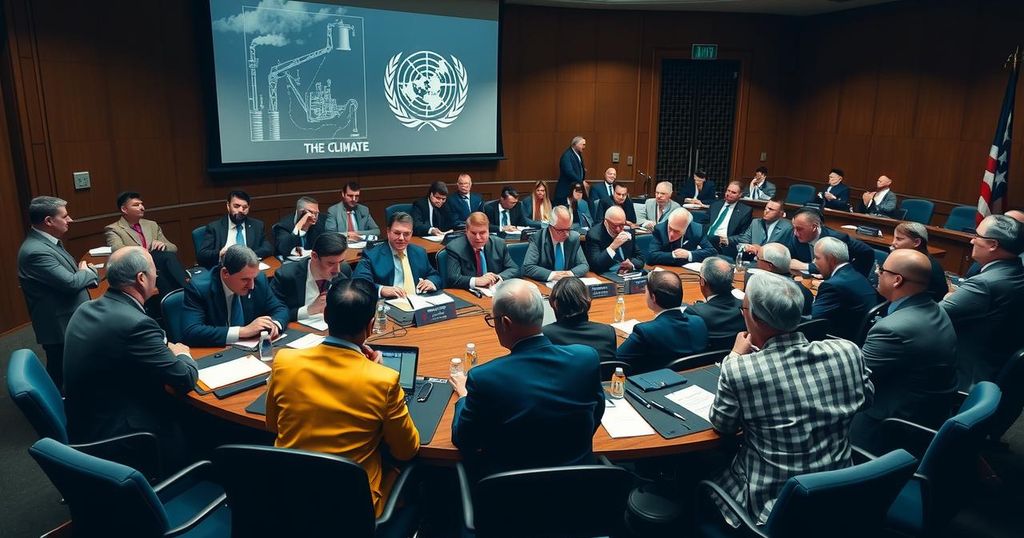Over 1,700 fossil fuel lobbyists are attending U.N. climate negotiations in Baku, outnumbering delegates from most countries except three. Climate groups express concerns about their influence on discussions, emphasizing the need for protection against corporate interests undermining climate action.
Current United Nations climate negotiations in Baku, Azerbaijan, have been marked by the presence of at least 1,773 fossil fuel lobbyists, according to a collective count by a coalition of climate advocacy organizations. This significant number of lobbyists has raised concerns about their influence on climate policy discussions. Climate organizations argue that allowing representatives of fossil fuel corporations a voice in policy making undermines the integrity of the negotiations, likening it to releasing a predator among vulnerable prey. Each participant in the conference is required to reveal their organizational affiliation and the nature of their involvement. Climate groups meticulously examined the provisional list of attendees, identifying individuals whose roles would reasonably suggest representation of fossil fuel interests. Alarmingly, fossil fuel lobbyists not only outnumber delegates from most nations but also surpass the number of representatives from countries most vulnerable to climate change impacts. Among those participating, ExxonMobil has sent an equivalent number of delegates to that of Guyana, a small nation facing severe threats from rising sea levels. This situation draws attention to the disproportionate representation of corporate interests in contrast to the voices of nations at the frontlines of climate change. As articulated by Kathy Mulvey of the Union of Concerned Scientists, these corporations have a troubled history of misleading the public and obstructing genuine climate action, raising questions about their credibility in earnest policy discussions.
The presence of fossil fuel lobbyists at United Nations climate negotiations poses significant challenges to the integrity of climate policy discussions. The growing influence of corporate interests within environmental platforms has become a critical concern for climate activists. With climate change representing one of the most pressing global issues, the need for honest and committed representatives from nations already suffering the impacts of climate change is paramount. The disproportionate representation of lobbyists as compared to vulnerable country delegates highlights the complex interplay between corporate influence and climate action.
In summary, the participation of over 1,700 fossil fuel lobbyists at the U.N. climate negotiations raises essential concerns regarding the integrity of climate policy formulation. Their overwhelming presence, particularly in comparison to delegates from the most climate-vulnerable nations, demonstrates a significant misalignment in stakeholder representation. As expressed by Kathy Mulvey, corporations that have historically obstructed meaningful climate action should not hold weight in discussions critical to global environmental sustainability.
Original Source: e360.yale.edu






